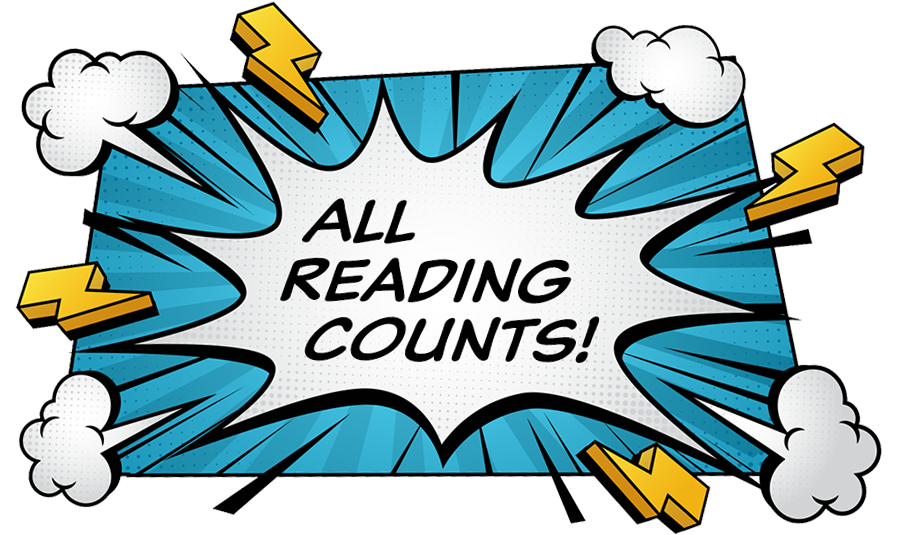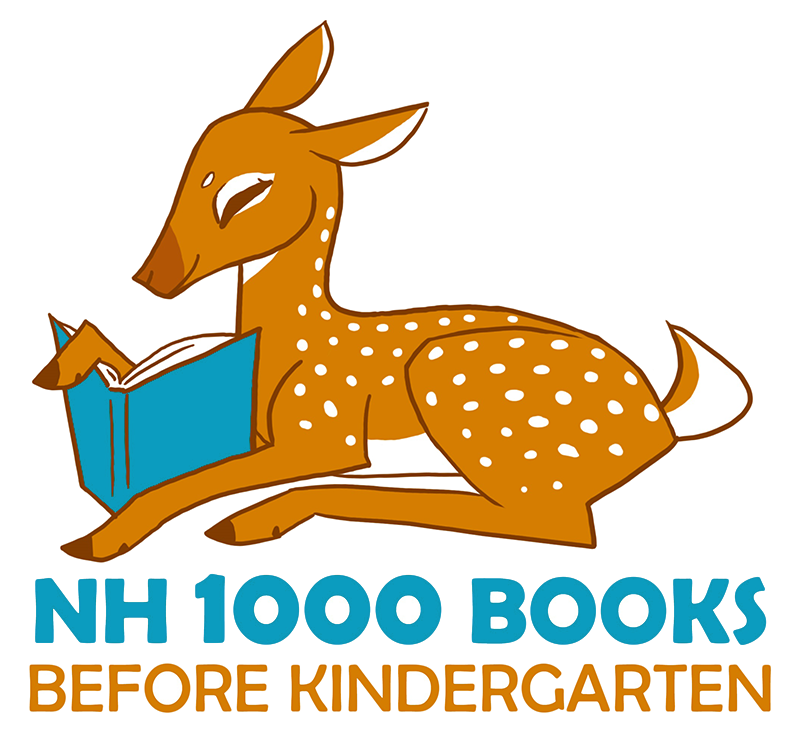Welcome to our parent resource page! As always, if you have any questions or if there's a something specific you’re looking for, please feel free to contact us and we’ll do our best to help you out!
Reading Resources
Here are some links that will provide great suggestions for helping your child develop and maintain an interest in reading. If you have a reluctant reader, check out our 20 Ways to Encourage Reading below.
Find Books
- Books for Reluctant Readers: A Scholastic list of teacher-recommended books for reluctant readers of all ages.
- Best Children’s Books: A site created by teachers, this is a good resource if you want to search by subject or reading level.
- eBooks & Audiobooks: Overdrive has pages just for kids and teens.
Award Winning Books
- Newbery Medal Winners: For American children’s literature.
- Caldecott Medal Winners: For outstanding illustration in an American children’s picture book.
- Sibert Medal Awards: For outstanding informational picture books.
- The Geisel Award: For using creativity and imagination to engage young readers.

eBooks count! Audiobooks count! Reading to your child counts! Comic books count! Instruction manuals count! Is your child crazy about tractors? Ask the local dealer for a tractor catalog! Catalogs count!
Reading is a tool to help us reach our dreams, whatever they are!
20 Ways to Encourage Reading
Children are curious by nature! Once they find the material they love, they’ll read! If your child has a reading disorder like dyslexia, reading may be very frustrating and discouraging. If your little one is reluctant to read for whatever reason, try these tips and see what works best for them. Reading is not a race; the long term love for knowledge and adventure is much more important!
- Scout for things your children might like to read. Use their interests and hobbies as starting points.
- Leave all sorts of reading materials including books, magazines, and colorful catalogs in conspicuous places around your home.
- Notice what attracts your child’s attention – even if they only look at the pictures – and then build on that interest. Read a short selection aloud, or simply bring home more information on the same subject. And remember, comic books count! Instruction manuals count! Is your child crazy about tractors? Ask the local dealer for a tractor catalog! Reading is a tool to help us reach our dreams, whatever they are!
- Let your children see you reading for pleasure in your spare time.
- Take your children to the library regularly. Explore the children's section together. Ask a librarian to suggest books and magazines your children might enjoy.
- Present reading as an activity with a purpose; a way to gather useful information for, say, making paper airplanes, identifying a doll or stamp in your child's collection, or planning a family trip.
- Encourage your child to read to their younger brothers and sisters. Older children enjoy showing off their skills to an admiring audience!
- Play games that are reading-related. Check your closet for spelling games played with letter tiles or dice, or board games that require players to read spaces, cards, and directions. (Just a note! If your child has a reading disorder like dyslexia, games like Boggle are actually painful. Just keep that in mind when selecting a game!)
- Perhaps over dinner, while you're running errands, or in another informal setting, share your reactions to things you read, and encourage your children to do likewise.
- Set aside a regular time for reading in your family, independent of schoolwork, the 20 minutes before lights out, just after dinner, or whatever fits into your household schedule. As little as 10 minutes of free reading a day can help improve your child's skills and habits. (Reading to your child at bedtime will also become some of your fondest memories.)
- Read aloud to your child, especially a child who is discouraged by his or her own poor reading skills. The pleasure of listening to you read, rather than struggling alone, may restore your child's initial enthusiasm for books and reading.
- Encourage your child to read aloud to you an exciting passage in a book, an interesting tidbit in the newspaper, or a joke in a joke book. When children read aloud, they do not need to get every word right. Even the best readers skip or mispronounce words now and then.
- On gift-giving occasions, give books and magazines based on your child's current interests.
- Set aside a special place for children to keep their own books.
- Introduce the bookmark. Remind your youngster that you don't have to finish a book in one sitting; you can stop after a few pages, or a chapter, and pick up where you left off at another time. Don't try to persuade your child to finish a book he or she doesn't like. Recommend putting the book aside and trying another.
- Reading doesn't have to be serious! Treat your children to an evening of laughter and entertainment featuring books! Many children (parents, too) regard reading as a serious activity. A joke book, a story told in riddles, or a funny passage read aloud can reveal another side of reading.
- Extend your child's positive reading experiences. For example, if your youngster enjoyed a book about dinosaurs, follow up with a visit to a natural history museum.
- Offer other special incentives to encourage your child's reading. Allow your youngster to stay up an extra 15 minutes to finish a chapter; promise to take your child to see a movie after he or she has finished the book on which it was based; relieve your child of a regular chore to free up time for reading.
- Limit your children's TV viewing in an effort to make time for other activities, such as reading. But never use TV as a reward for reading, or a punishment for not reading.
- Not all reading takes place between the covers of a book! What about menus, road signs, food labels, and sheet music? Take advantage of countless spur-of-the-moment opportunities for reading during the course of your family's busy day.
1000 Books Before Kindergarten: A Lifetime of Benefits
The single most important thing you can do to prepare your child to learn is to read to them every day. Research has proven that reading to your child regularly while they’re young (0-5) increases their vocabulary and significantly improves their listening and narrative skills. Reading with children helps instill self-awareness, confidence, and an understanding of their place in the world. And it’s a bonding experience you’ll never forget!
WHAT COUNTS? Everything! Every book you read to your child counts every time you read it! (Yup, you can read “Mouse a Cookie” every day for a week if it’s a hit!) Books your child hears in Storytime count. Books that others read to your child count. It all counts!
WHERE CAN I SIGN UP? Sign up right here in the Youth Library. We will give you sheets to help you keep count of the first 100 books. When you finish reading 100 books, come back to the library for another set of sheets and a prize. We will celebrate all who finish reading 1000 books with a special event.
WHEN DO I SIGN UP? You can register anytime your child is between birth and five years old. It’s one of the best gifts you will ever give your child…and yourself!
BOOK LIST: Great Books to Read Before KindergartenNH 1000 Books before Kindergarten is an early literacy initiative that encourages families to read to their young children and to use the resources of their public libraries. The project is based on the national 1000 Books Before Kindergarten initiative. NH 1000 Books Before Kindergarten is sponsored by CHILIS and the NH State Library, and supported by the Center for the Book at the NH State Library, the Jack and Dorothy Byrne Foundation, the NH Academy of Family Physicians, and NH Family Voices.
Internet Safety
Heads Up: Stop, Think, Connect
Great advice for young people on how to protect their privacy and security online. (It also has good advice on how to behave online – something many adults could use!) This website also has an entire collection of Online Privacy and Security advice for adults and seniors.
NCMEC Online Safety
Important information about the dangers of online enticement from the National Center for Missing and Exploited Children. NCMEC also offers KidSmartz for K through 5, and NetSmartz for middle and high schoolers.
e-Safety Parents
Created by the Australian government, this website has great advice for online safety and security.
Common Sense Media
Common Sense Media is the leading independent nonprofit organization dedicated to helping kids thrive in a world of media and technology. Their mission is to provide unbiased information, trusted advice, and innovative tools to help parents, teachers, and lawmakers harness the power of media and technology as a positive force in all kids’ lives.
Parenting
GROW by WebMD
Grow is WebMD’s site for parents, with information on milestones, child development, behavior, healthy habits, and more.
Planned Parenthood For Parents
This site helps you give your growing children the information they need to make healthy, safe choices as they grow up. There is helpful advice on how to have open, empowering conversations about sex, puberty, bodies, and relationships.
NH Family Voices
New Hampshire Family Voices provides support and services to families and professionals caring for children with special healthcare needs.
New Hampshire Homeschooling Coalition
The NHHC offers info on getting started with homeschooling, curriculum and learning programs, links to events and group activities, and more.
Home Education Rules & Regulations
Stay up-to-date on the current laws regarding homeschooling in New Hampshire.
Community Resources
Check out the Gafney Community Resource page to learn about local programs and services!
More resources
We have created pages loaded with resources just for kids and teens! Check them out:

